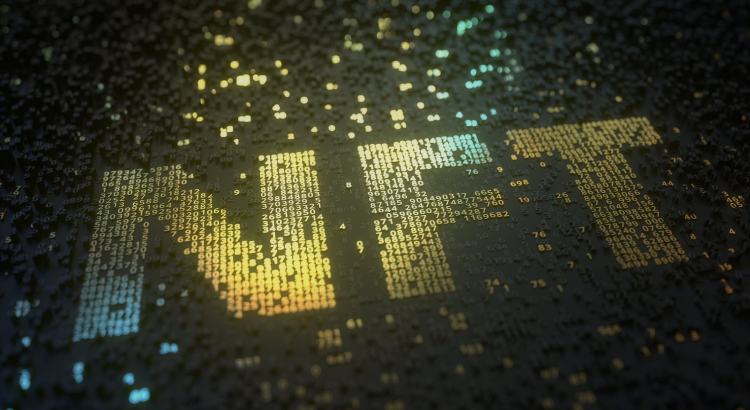FROM OUR PARTNERS

Imagine a famous Footballer like Messi, Lewandoski, or Ronaldo signs on your Jersey after a football match? How about a scenario where a famous Musician gives you his or her cherished expensive Guitar after a musical concert you attended? The excitement that comes up when you receive these gifts is a driving force behind what NFT is and why they are expensive.
An NFT is simply a digital asset representing real-world objects such as; art, music, videos, and sports memorabili which is bought and sold online with cryptocurrency. NFT started gaining traction recently although they’ve been around since 2014. A whopping $174 million has been spent on NFTs since 2017.
According to Arry Yu, the Chairman of Washington Technology Industry Association Cascadia Blockchain Council, NFTs create digital scarcity and are generally scarce and unique identifying codes, unlike most digital creations, which are primarily infinite in supply.
Nowadays, NFTs are digital creations of events or occurrences that already existed in some form before, such as; digital arts, video clips, NBA games, and even the foremost tweet from Jack Dorsey, Founder of Twitter who’s the first tweet sold for $2.9 million.
NFTs are held on the Ethereum blockchain, but holistically, NFTs differ from cryptocurrencies. The fundamental difference between NFT and cryptocurrency is “fungibility.” In a Fungible Token as observable from cryptocurrencies, Bitcoin and other cryptocurrencies are the same with no distinguishable entity; a one hundred dollar ($100) note, for instance, has the same value within the United States. For example, Suppose you lend someone $100 on the repayment period. In that case, it certainly won’t matter whether you are paid in $50 bills or $100 notes because the $50 bills equal the $100, and that’s the concept of fungibility, which implies an asset that is interchangeable with other assets. Financial instruments and indicators such as; stocks or bonds are also fungible assets that can be sold and exchanged in a stock market.
NFT is an acronym for Non-Fungible Token and non-fungibles; this perspective implies an asset that is unique, immutable, irreplaceable, and non-exchangeable. Art, games, music are examples of non-fungibles.
You might wonder how you can create and sell your own NFTs, but it is pertinent to understand how NFTs work.
Although, most NFTs are built on the Ethereum blockchain with an irrefutable ledger for transactions that records buying and selling activities.
The creator of the NFT retains the copyright for it and holds the right to duplicate if need be. If more copies of an NFT are needed, permission can be sought after from the creator, and each of those copies is still considered as NFTs.
Creators of NFTs will receive royalties each time an NFT is sold. For instance, holders of EulerBeats Originals, an NFT audio-visual platform, receive 8% of each copy of the original token sold print price.
Creators can now determine how much royalties they will receive whenever their NFT is sold in the marketplace.
Your NFTs are worth value to someone who might be willing to pay for them in the marketplace. It could be worth more if a famous artist creates the NFT, and the buyer is a wealthy collector. Anything you own can virtually be traded as an NFT once you mint it on an Ethereum blockchain.
Arts undoubtedly popularize NFT sales in recent times, but it’s not just NFT arts that sell. There have been diverse notable NFT sales in recent months across virtually all sectors, including sports, music, and fashion, with speculations for a market bubble.
Jack Dorsey, the founder of Twitter, sold his first tweet for $2.9 million in a competitive sales exhibition.
In February 2021, digital artist Beeple sold the NFT for their every day, the first 5000 Days artwork for a whopping sum of $69.3 million through Christie’s auction house.
The “Nyan Cat” GIF was sold for 300 Ether worth around $561,000 at the time.
Some weird videos even make it to the NFT marketplace with raking some good figures, typical to mention here is the “Charlie Bit Me” video, a popular video on YouTube of a baby biting his brother’s finger with over 800 million views, sold for around £500,000.
According to CryptoSlam, in March 2021, the marketplace for NFTs buy and sell grew exponentially to $1 billion in sales volume.
Although still in its infancy, the potentials of NFTs kept evolving with a prominent marketplace and merged with the capability of redefining the blockchain space.
Here are the primary uses of non-fungible tokens:
Interestingly, some venues offer programs in blockchain learning with rewards to students for earning, a concept that defines NFT in Education.
NFTs are irreplaceable, memorable, and unique identifiers supported majorly by the Ethereum blockchain that can be created and sold as digital assets on an NFT marketplace such as the OpenSea, Raible, SuperRare, KnownOrigin, MakersPlace, Solanart, NBA Top Shot Marketplace, Axie Marketplace, among others.
Anyone can work or event and convert it into an NFT in a process called “minting” and sell it as NFTs in a marketplace. For instance, Musicians sells rights and originals of their work as well as short videos to clips of their music as NFTs; Sports Men and Women sell their jerseys, favorite goals, or moments on the pitch as NFTs; a budding digital artist can now showcase their talents by creating NFTs for their work in a bid to getting good monetary rewards and credits for their art piece or collections.